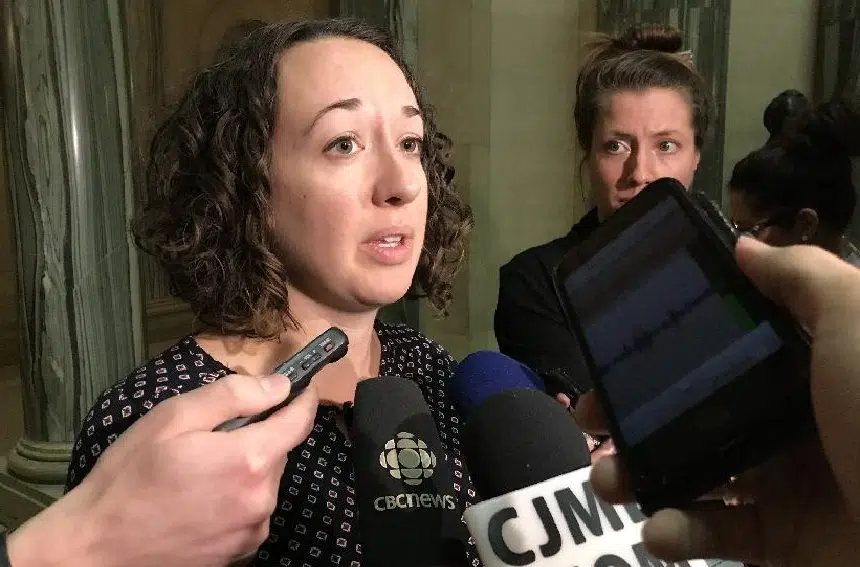The Saskatchewan NDP has been getting jabs from all sides this week after members voted for The Saskatchewan First Act on Monday evening.
The bill was on second reading that night and passed unanimously, including affirmative votes from the six NDP MLAs present.
Saskatchewan Party MLAs have been pointing out the NDP votes and some NDP supporters have been questioning the thinking behind it.
“It’s very common for us to allow bills to move on from second reading stage on to committee. That’s what ended up happening that evening; that was what we wanted to do. We’re really looking forward to having this piece of legislation move on to the committee stage,” said NDP House Leader Nicole Sarauer.
Sarauer said where the rubber meets the road is at committee, where the opposition can ask questions, get answers, potentially hear from witnesses, and table amendments.
“The Saskatchewan NDP absolutely believes we should be standing up for Saskatchewan at the federal level. We need to be ensuring that we’re getting the best deal for this province. Does this bill hit that mark?” asked Sarauer.
According to Sarauer, the government doesn’t normally call for a standing vote on second reading – other than private members’ priority motions.
“In terms of regular bills moving through the regular process, it hasn’t happened since I’ve been here. And when we were looking back I think it’s happened maybe twice, two or three times, in the last 15 years,” she explained.
Sarauer accused the Sask. Party members of playing some “cheap political game.”
“What this bill should be doing, and it’s not doing, and what this government should be doing, which it’s not doing, is actually pushing forward Saskatchewan’s interests in an adult way at the federal level,” said Sarauer.
She said the NDP is all for standing up for Saskatchewan at the federal level, but it wants to make sure the legislation actually does that. At this point, Sarauer said, it looks like the bill just reasserts what already exists.
“We’ve been calling for this government to reignite the equalization litigation that the Sask. Party backed down on when Stephen Harper went into government. We think that that would be a positive angle that would actually do something rather than this legislation which simply … provides nothing new in terms of powers for the province,” she said.
The Sask. Party government has said before that the act is about asserting the province’s authority and the evidence gathered by the tribunal it will create could be used as evidence in court challenges.







